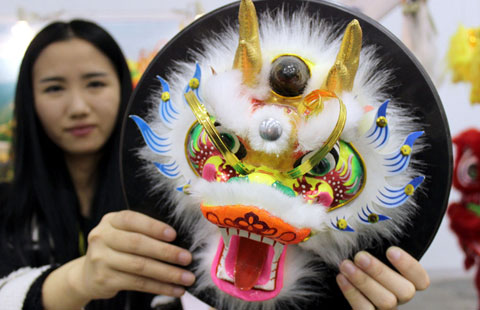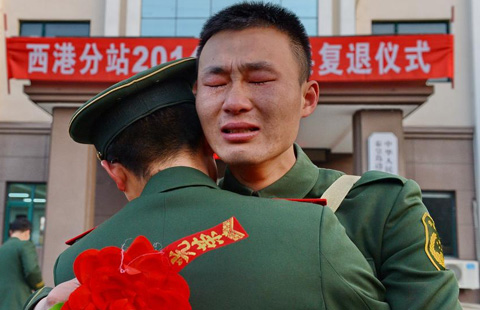Novel on life and death of a funeral singer reveals history
Updated: 2014-11-26 07:39
By Liu Zhihua(China Daily)
|
||||||||
Laohei kills Sifeng out of mercy. Then the soldiers kill him.
This is just one tragic tale from the turbulent periods of the revolution, "cultural revolution" (1966-76) and economic reforms.
The book reveals both the selfish and selfless sides of humanity. It also shows good people can be driven to evil, and vice-versa.
Every chapter is prefaced with an excerpt from Shanhaijing (The Classic of Mountains and Seas)—a collection of legends about geography written more than 4,000 years ago. The way Shanhaijing chronicles one mountain after another inspired Jia to write about one village after another, he says.
Italian embassy translator and cultural officer Patrizia Liberati praises the way in which readers know what time period events take place even though no years are given.
"You just know when the time is as you read the novel, no matter if you are familiar with Chinese history or not," Liberati says.
"It's like a circle, without starts and ends, which echoes as history itself. Personally, I think history cycles."
Chinese Writers' Association critic Li Jingze says the unique structure demonstrates Jia's understanding of the relationships among history, literature and memory. He believes it's an "exquisite salute" to the Chinese classic A Dream of Red Mansions, since both delve into life's meaninglessness and fate.
Most Viewed
Editor's Picks

|

|

|

|

|

|
Today's Top News
Anti-corruption move gains traction
Maryland's new first lady thankful
US, China push climate change onto front burner
Amazon answers China's 'Double 11' with Black Friday
Tencent-HBO deal can feed big appetite for content in China
Tencent looks to up app game on US campus
China's tire firms urge govt to fight US action
Chinese men spending more on facial care
US Weekly

|

|
















